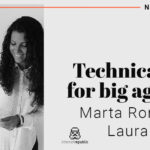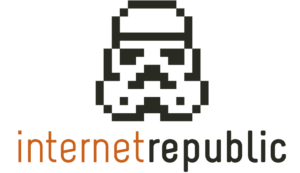
Everything you need to know about E-A-T in SEO
Hello, community!
Have you heard of the E-A-T in SEO? Monserrat López Edwards and Laura Sánchez, SEO consultants at Internet República, explain what these three acronyms mean and why your SEO strategy should take them into account.
You can also watch the webinar video they delivered at SE Ranking on this topic here:
First, we need to look back at when such terms enter our world: nowadays, with the COVID-19 pandemic, many people search for symptoms or diseases on Google. Now, much more information about the disease, such as incidence, is available on Google. Google tries to adapt as much as possible and to be as accurate as possible. Another example is searching for “pineapple diet” on Google: the first result that appears at the user level does not generate confidence because a magazine is telling us about something that can affect my health. In 2013, a document called Search Quality Evaluator Guidelines (SQEG) appeared, a document used by researchers on websites, which tells them how to approach different topics.
What elements are taken into account in the SQEG?
They are divided into two: the intention that a website may have (for example: a health website will be more relevant to medical issues) and page quality (which is where the terms YMYL and E-A-T come). Your Money or Your Life appears as a factor to differentiate certain websites in which these guidelines must be much more present, such as finance, user security… On the other hand, in the EAT (expertise, authoritativeness, trustworthiness) the sites that we see more affected or for which these Evaluator Guidelines appear are for sites that can directly affect our daily lives (health, economy…).
Origins of the E-A-T
In 2013, this guide began as a series of recommendations that Google was going to have as critical control factors, as there was a lot of intrusiveness, and a need to differentiate content that was focused on SEO and had dubious content began to be noticed. From then on, especially in the last 5 years, the criteria have been refined.
Main factors of the E-A-T
1.Expertise: It is based on how Google understands the level of knowledge or skill that the author of that content would have depending on a specific field or subject matter. Nowadays we need an increasingly specialised level of expertise when creating content. Google does not just look at the domain level, it looks at each piece of content, who is creating it, whether they have knowledge in that area and whether the content is useful and truthful.
2.Authoritativeness: In addition to having experience, I must have a way to demonstrate (in the eyes of Google and in general, in the eyes of users) what reputation I have or what reputation my sources have when creating that content. Normally, when we talk about offline content, this part has a lot to do with other experts in the sector recommending me, or appearing in related publications. It is no longer just about quantity, now we are going to take quality into account.
3.Trustworthiness: It is about being transparent and giving the user confidence when visiting and interacting with my content. We must demonstrate the legitimacy of the content and be very precise when publishing it, as well as showing the user directly that we have had truthful and direct sources, and that it is valid content.
How does E-A-T affect us at the SEO level?
SEOs lived happily until 2018 when the “Medic” algorithm update arrived, which affected all Your Money or Your Life sites. With the E-A-T we must always be up to date and not allow an algorithm to come along and “give us a wake-up call”. Content is always king, but we must be aware of social signals. The number of links my website has is not going to make me more relevant, but the quality of these links.
Don’t optimise for keywords, optimise for concepts
In this idea of concepts, individual urls are already being worked on. Instead, it is necessary to work on positioning specific topics with broad, very complete content and where both business terminology and SEO terminology are taken into account.
Importance of “Frequently Asked Questions”
Especially in economic or health topics, in “Frequently asked questions” we will have a very complete content. Not only will we manage to anchor the user on our page, but even our SEO quality metrics, such as how many pages are consumed from the same site, will improve a lot. It is a basic requirement.
Joint strategies
We are no longer SEO optimising for SEO, but we are now part of a 360 strategy where we will have to work collaboratively with other sectors or areas of the company when it comes to defining how the design of the page will be, how many banners it will have… We must have a joint vision to meet all these criteria and thus obtain better results.
Artículos relacionados
Montse López
Latest posts by Montse López (see all)
- Everything you need to know about E-A-T in SEO - 24 March, 2021






